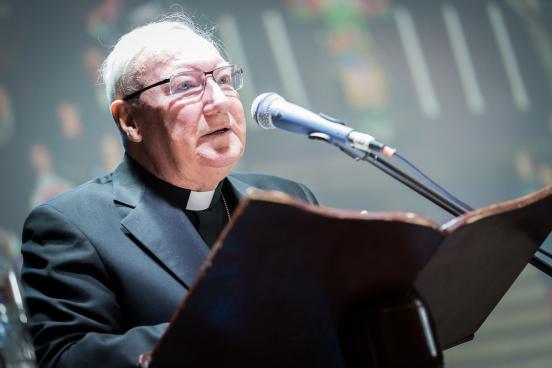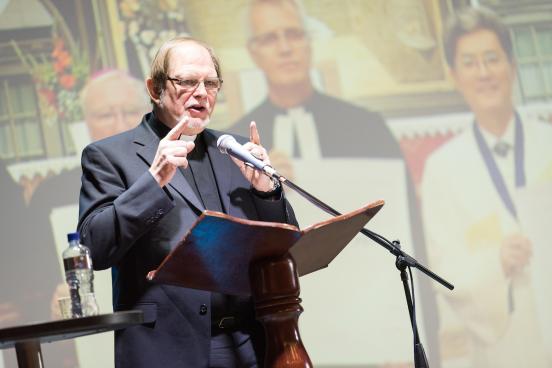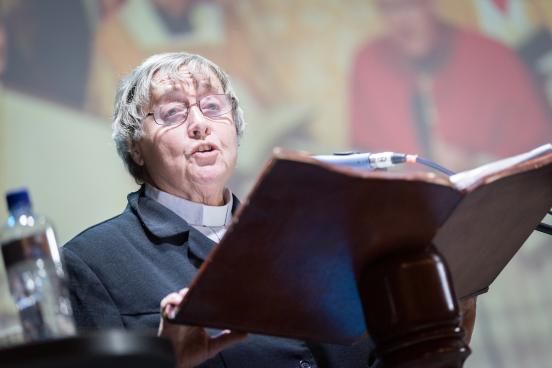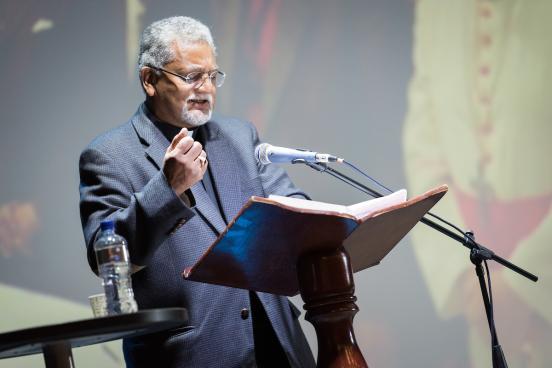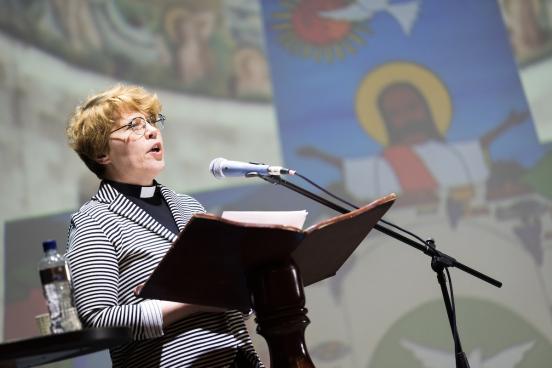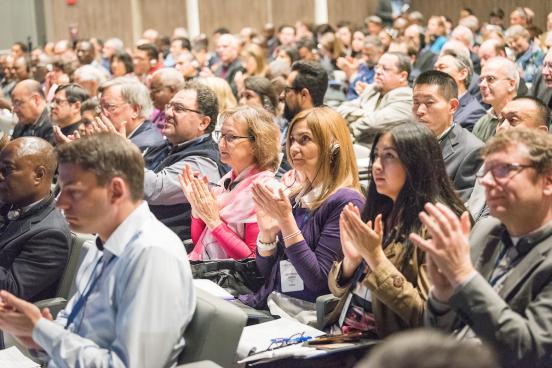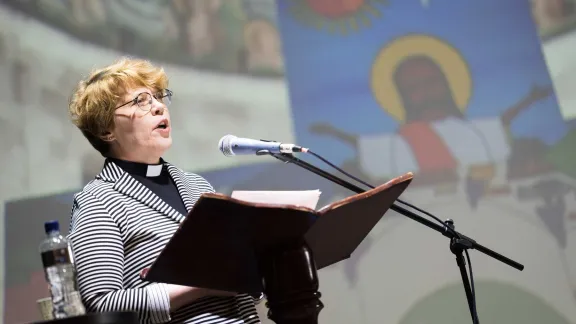
Plenary on Relationships Old and New. The Global Christian Forum gathers in Bogotá on 24-27 April 2018 under the theme of
LWF and ecumenical partners present Lutheran-Catholic dialogue at Global Christian Forum
(LWI) - “Being reconciled as members of the same body has deepened our mutual commitment to this shared journey where we have been and continue to be led by the Holy Spirit,” Rev Dr Kaisamari Hintikka, Assistant General Secretary for Ecumenical Relations at the Lutheran World Federation (LWF) said in a presentation “From Conflict to Communion – a bilateral journey of reconciliation that became a multilateral one” at the Global Christian Forum in Bogotá, Colombia.
“The same spirit has inspired also our local communities to both receive the gifts of the global dialogue – and to share the gifts of their encounters with our churches,” she added.
From shared baptism to Joint Commemoration
In a joint presentation with Bishop Ivan Abrahams, General Secretary of the World Methodist Council, Rev. Canon Alyson Barnett-Cowan, President of the Canadian Council of Churches, representing the Anglican Communion, Rev. Chris Ferguson, General Secretary of the World Communion of Reformed Churches and Bishop Brian Farrell, Secretary of the Pontifical Council for Promoting Christian Unity, Hintikka detailed the steps of the Lutheran-Catholic dialogue which began in 1967. “It was the understanding of sharing the same baptism that further inspired us when we first gathered around the same dialogue table,” she recalled.
Fifty years later, the dialogue culminated in the signing of the Joint Declaration on the Doctrine of Justification (JDDJ) between the LWF and the Pontifical Council for promoting Christian Unity in Augsburg, 1999.
“We have shared many gifts, we have learned to see one another with new eyes – and learned through our own experience that indeed the things that unite us are greater - and not just greater but far more numerous than we thought at the beginning of this journey. We have grown to understand what it means that we are the branches of the same true vine, Jesus Christ,“ Hintikka said.
Since 1999, the World Methodist Council, Anglican Communion and the World Communion of Reformed Churches have also joined this ecumenical journey, affirming the JDDJ.
Meaning for the life of the churches
“At the time, we knew that we had taken a step of invaluable importance in our journey,” Hintikka said. “But we had also grown in awareness that - because of the centrality of justification in our Christian faith - it was not just an issue for the Lutherans and Catholics to share this gift of shared understanding of justification. We needed to invite the others to join us on the journey.”
In his part of the joint presentation, Bishop Brian Farrell discussed the meaning of the multilateral JDDJ in the spiritual and ecclesial life of the churches, asking about the implications for institutional relations between the churches: “So far the churches themselves have said little about this hugely hopeful aspect of the agreement,” he said. “But many of us are convinced that the JDDJ and the Lund event contain something new that the churches still have to uncover and assimilate. The Holy Spirit has worked something new that now needs to be understood and acted upon."
The five signatories to the JDDJ have agreed to hold a high-level consultation on the ecclesial implications of the JDDJ in the spring of 2019.
The Global Christian Forum is a platform for Christian faith across traditions, without claiming to be a body in itself. The gathering of the Global Christian Forum represents a broad expression of world Christianity, with leaders coming from all streams of the Christian faith. One goal of the meeting is to come to a closer understanding and joining hands in addressing common challenges.
Participation is based on a 50/50 ratio between leaders from church traditions, like the Catholic, Orthodox, and Protestant churches, and newer churches, such as Evangelical, Pentecostal, and independent. Lutheran church leaders from several LWF member churches are participating.
